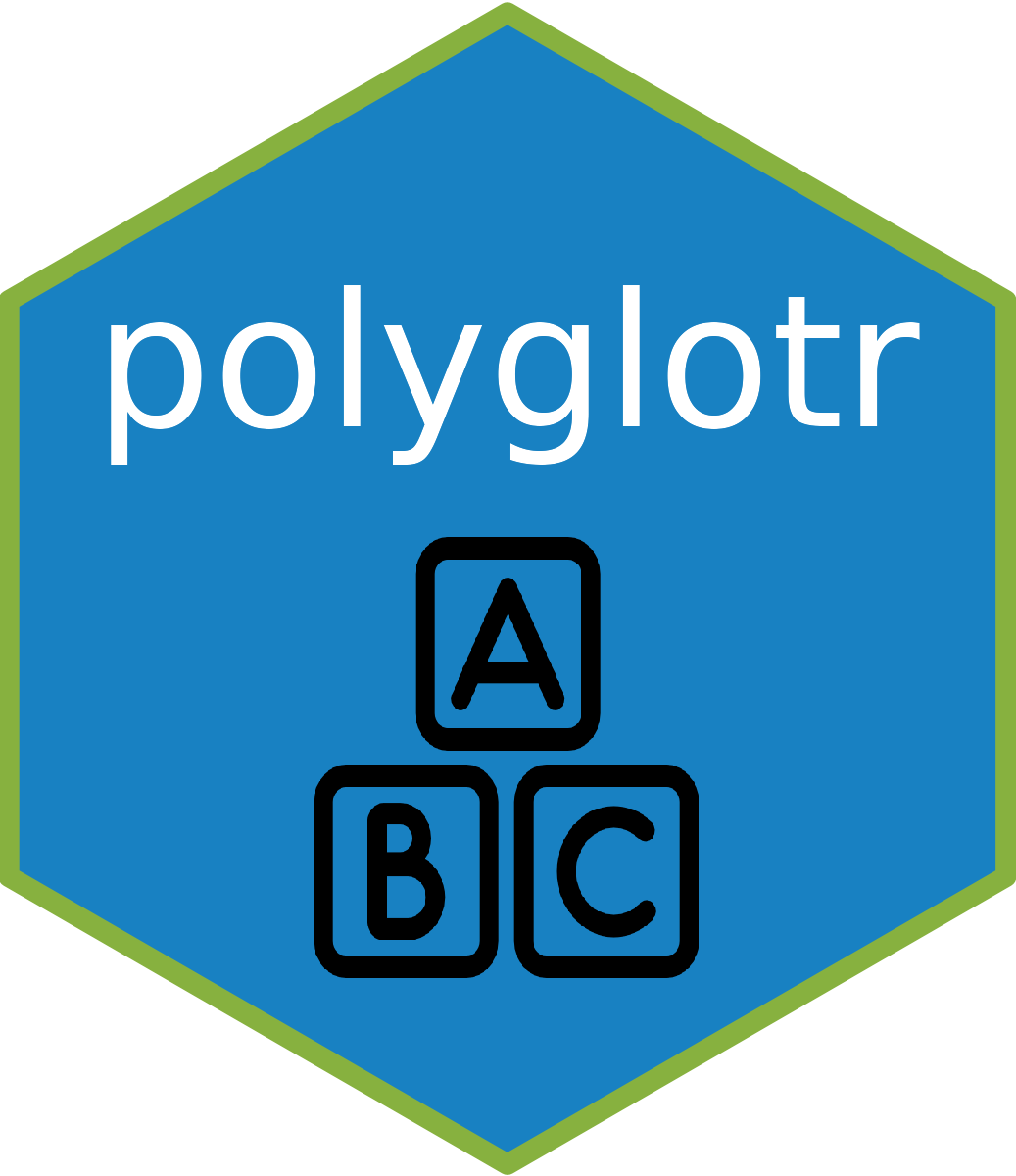

Versatile R Package for Text Translation
Seamless integration with multiple free translation services for R
users.
Ideal for translating text, files, and creating
multilingual datasets.
Built by Tomeriko96 and contributors.
The polyglotr package is a language translation tool for
the R programming language. It provides convenient functions to
translate text using different (free) translation services. This
vignette will guide you through the usage of the package and demonstrate
how to translate text and files in various languages.
Currently, the package has functions to communicate with the following services:
polyglotr stands out as a versatile and user-friendly
translation tool for R users. Here’s why you should consider using
it:
By choosing polyglotr, you’re opting for a powerful, flexible, and user-friendly translation solution that integrates seamlessly with your R environment, all without the barriers of authentication or service-specific setups.
To see which functions are available, please refer to the reference
page of the polyglotr package. The reference
page provides a comprehensive list of functions available in the
package, organized by category.
Additionally, the package includes vignettes that provide more detailed information on how to use the functions in the package.
To install the package:
# The easiest way is to get polyglotr from CRAN
install.packages("polyglotr")
# Alternatively, install the development version from GitHub
# install.packages("remotes")
remotes::install_github("Tomeriko96/polyglotr")Here’s a minimal example to get you started:
library(polyglotr)
# Translate a simple phrase using Google Translate
text <- "Hello, world!"
translation <- google_translate(text, target_language = "fr")
print(translation)
# Translate using Apertium (no API key required)
translation_apertium <- apertium_translate(text, target_language = "es", source_language = "en")
print(translation_apertium)
polyglotr includes a web application for translation
services, accessible to users without R programming knowledge.
library(polyglotr)
launch_polyglotr_app()
# Or with custom settings
launch_polyglotr_app(port = 3838, launch.browser = TRUE)To use the Shiny app, install these additional packages:
install.packages(c("shiny", "shinydashboard", "DT"))To demonstrate the usage of the polyglotr package, let’s
consider an example where we translate a list of texts into multiple
languages using the create_translation_table function.
texts <- c("Hello, how are you?",
"I love programming!",
"This is a test.")
languages <- c("es",
"fr",
"de")
create_translation_table(texts, languages)
#> Original_word es
#> 1 Hello, how are you? ¿Hola, cómo estás?
#> 2 I love programming! ¡Me encanta programar!
#> 3 This is a test. Esto es una prueba.
#> fr de
#> 1 Bonjour comment allez-vous? Hallo, wie geht's dir?
#> 2 J'adore programmer ! Ich liebe Programmieren!
#> 3 C'est un test. Das ist ein Test.
Contributions are welcome! If you’d like to contribute, please:
This project is licensed under the MIT License - see the LICENSE file for details.
If you use polyglotr in your research, please cite it as follows:
Iwan, T. (2023). polyglotr: Multilingual Text Translation in R. R package version 1.0.0.
https://github.com/Tomeriko96/polyglotr